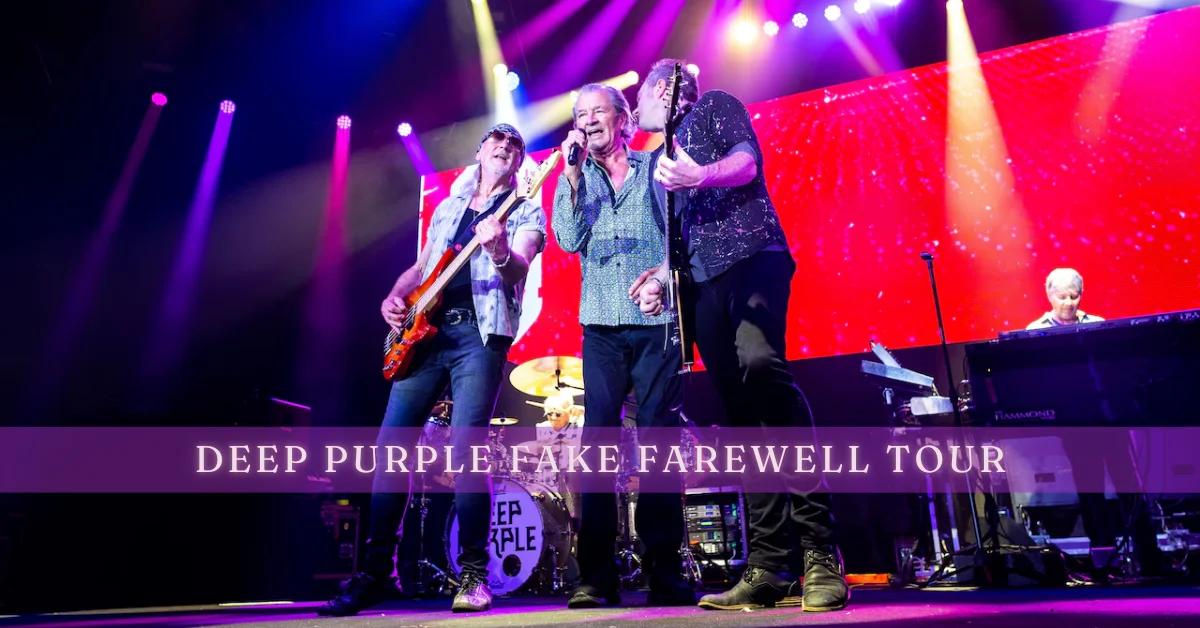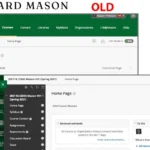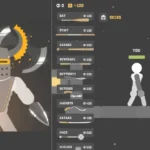Introduction to deep purple fake farewell tour
Deep Purple, the iconic rock band known for their electrifying sound and legendary performances, has stirred up quite a storm with their latest announcement. The so-called “fake farewell tour” has left fans scratching their heads and questioning everything they thought they knew about the band’s future. With a rich history that includes multiple farewells, this latest twist raises eyebrows and fuels speculation. Are we witnessing just another marketing ploy? Or is there more to the story than meets the eye? Buckle up as we take you on a deep dive into the shocking facts surrounding Deep Purple fake farewell tour—it’s time to separate myth from reality!
ALSO READ: BG3 Do Enemies Scale? A Guide to Encounter Difficulty
The History of Deep Purple and Previous Farewell Tours
Deep Purple, formed in 1968, is a titan of rock music. Their unique blend of hard rock and progressive sounds captured the hearts of millions. Hits like “Smoke on the Water” and “Highway Star” became anthems for generations.
The band’s journey has included numerous lineup changes and even breakups. They first announced their farewell tour in 1993 after releasing “The Battle Rages On.” It was a bittersweet moment for fans who thought they were bidding adieu to their beloved group.
However, the band returned with new albums and tours soon after. Each so-called farewell created buzz but also confusion among loyal followers. The cycle continued as Deep Purple embraced both nostalgia and reinvention over decades. This pattern set the stage for yet another chapter—one that many now label as a fake farewell tour amid growing disillusionment from fans.
Rumors and Speculations Around the
As whispers circulated, fans began to wonder if Deep Purple’s farewell tour was genuine. Some claimed it was merely a marketing ploy.
Many speculated about the band’s true intentions. Given their storied history, it seemed plausible that they might continue performing long after announcing their exit from the stage.
Social media buzzed with theories and discussions. Fans shared insights and pieced together clues from interviews, fueling speculation even further.
Some pointed out recent comments made by band members hinting at future projects. Others recalled previous tours that were labeled as “farewell,” only for the group to return shortly after.
The uncertainty fostered an air of mistrust among loyal followers who felt misled by what should have been a heartfelt goodbye.
Evidence of a Fake Farewell
Fans began to piece together the puzzle, leading to a growing suspicion about the authenticity of Deep Purple’s farewell tour.
Social media exploded with theories as concert dates were announced and subsequently extended. Many questioned why a band that had declared their final goodbye continued to add new shows.
There were also whispers about behind-the-scenes discussions. Industry insiders hinted that, rather than an end, this might be more of a strategic pause.
Merchandise sales soared during this period, raising eyebrows among loyal followers. How could a farewell tour bring in such high profits if it truly signaled the end?
Then came the interviews where band members expressed conflicting sentiments about retirement plans. Their words often danced around commitment and left fans feeling unsettled.
This lack of clarity fueled speculation even further—was it all just marketing? The evidence suggested that perhaps not everything was as it seemed in this so-called farewell journey.
Fans’ Reactions and Disappointment
Fans across the globe reacted with a mix of disbelief and frustration when news broke about the Deep Purple fake farewell tour. Many had anticipated this would be their final chance to see the legendary band live, pouring their hearts into each ticket purchase.
Social media erupted with comments ranging from shock to outrage. Some fans felt betrayed, having traveled great distances for what they believed was a last hurrah. The emotional investment in attending these concerts made the revelation sting even more.
Others expressed disappointment over what they perceived as a gimmick to boost sales or prolong a fading legacy. Fans expected transparency from artists they’ve supported for decades, and many felt let down by this apparent lack of honesty.
The community shared memes and anecdotes, reflecting on past tours that claimed finality yet continued to resurface. It’s clear that trust has been shaken within this devoted fanbase.
Possible Motivations for the Fake Farewell
The motivations behind Deep Purple’s fake farewell tour are intriguing. One possibility is financial gain. With a devoted fan base, the band likely knew ticket sales would be robust.
Another angle to consider is nostalgia. Announcing a farewell can create an emotional connection with fans. It taps into memories and shared experiences, driving people to attend one last show.
Then there’s the allure of exclusivity. A “final” tour creates urgency among fans who don’t want to miss out on what they perceive as their last chance to see the band perform live.
It could be a strategic move for future projects. By piquing interest now, they may set the stage for surprise releases or collaborations down the road.
These factors paint a complex picture of why such bold claims might not hold true in the long run.
Lessons Learned from the Deep Purple Fake Farewell Tour
The Deep Purple fake farewell tour has stirred a significant conversation within the music community. Fans are left pondering the authenticity of their favorite bands and the messages they convey.
One key lesson is the importance of honesty in communication. When artists declare a farewell, it should resonate with sincerity. Misleading announcements can fracture trust between musicians and their audience.
Additionally, this situation highlights how fans crave genuine connections. They invest emotionally and financially into tours that promise closure or finality. A lack of transparency can lead to disappointment rather than celebration.
There’s a growing need for accountability in the industry. Musicians must recognize that their choices impact not only careers but also legacies. The way forward involves fostering an honest dialogue with fans who support them through thick and thin.
Conclusion: The Importance of Transparency in the Music Industry
The Deep Purple fake farewell tour has sparked significant discussions within the music community. Fans who once celebrated the band’s supposed final bow now feel a mix of confusion and betrayal. The trend of bands announcing farewells only to return raises important questions about authenticity.
Transparency in the music industry is crucial for maintaining trust with fans. Artists should be open about their intentions, whether they genuinely intend to retire or if they’re planning another tour cycle. This honesty helps preserve the emotional connection between musicians and their audiences.
As we reflect on Deep Purple’s journey, it becomes evident that clarity can enhance appreciation for an artist’s work. When fans invest emotionally in a band’s story, misleading announcements can lead to disillusionment.
While it’s natural for artists to evolve and change direction, being straightforward about future plans will ultimately foster a loyal fanbase that appreciates their contributions over time. The importance of transparency cannot be overstated; it lays the foundation for lasting relationships within this vibrant industry.
ALSO READ: A Journey Through MyDearQuotes.com Quotes Archives
FAQs
What is “Deep Purple Fake Farewell Tour”?
The “Deep Purple Fake Farewell Tour” refers to the band’s latest tour, which fans suspect may not be their final farewell, given past instances of similar tours followed by returns.
Why do fans call it a fake farewell tour?
Fans question the authenticity of the farewell due to the band’s history of “final” tours followed by surprise returns, raising doubts about their true intentions.
What sparked the rumors about Deep Purple’s fake farewell?
Rumors emerged due to conflicting statements from band members, continuous tour extensions, and a focus on merchandise sales, leading fans to believe it was a marketing stunt.
How have fans reacted to the fake farewell tour?
Many fans feel disappointed and betrayed, as they had anticipated this would be their last chance to see the legendary band live, only to face uncertainty.
What are the possible motivations for Deep Purple’s fake farewell?
The motivations might include financial gain from ticket sales, nostalgia marketing, creating urgency for fans, or setting up future projects and surprise releases.











